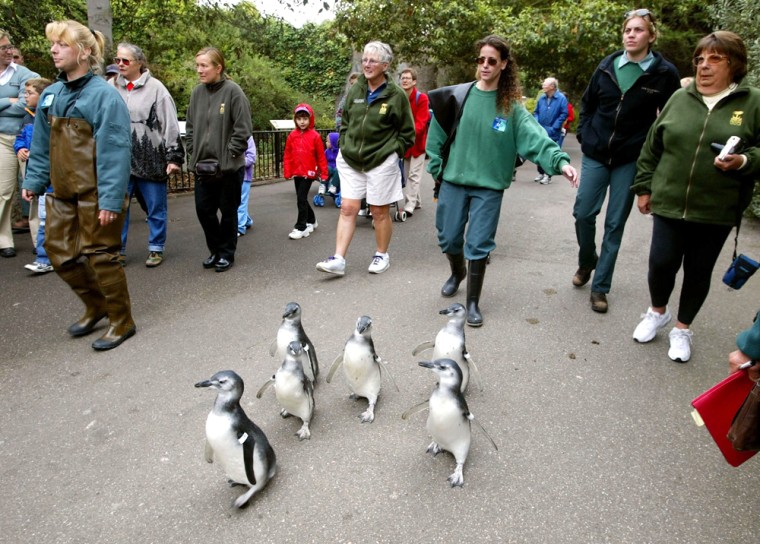An outbreak of chlamydia at the San Francisco Zoo has left a dozen penguins dead, according to a spokesman.
The bacteria, which was most likely transmitted to the birds by an infected seagull, is spread through airborne saliva or other bodily fluids, said Bob Jenkins, the zoo's director of animal care and conservation. A similar disease is sexually transmitted in humans.
"One quick exposure and you're off and running," Jenkins said, adding that at its height, nearly 80 percent of the zoo's penguin colony was infected. "It required very aggressive treatment on our part."
Zoo workers first noticed several lethargic birds about two months ago. The penguins that died were mostly original members of the colony and about 20-years old, Jenkins said. Their weakened immune systems led to kidney failure and respiratory distress, which eventually killed them. The average penguin's life span is 15 to 20 years.
Precautions were taken to ensure no other animals or human visitors were infected. Only certain keepers wearing special clothing and masks took care of the penguins, the whole area was routinely disinfected and the birds were treated with antibiotics, Jenkins said. He added this was the first chlamydia outbreak among the penguins.
Some of the zoo's 55 remaining penguins are still recovering, he said.
"It's a strong colony, so it seems to be bouncing back well," Jenkins said.
